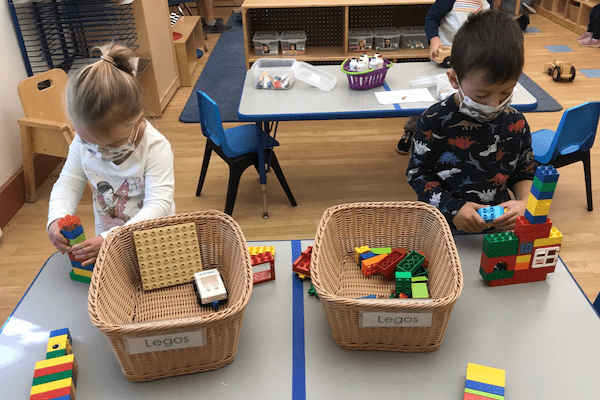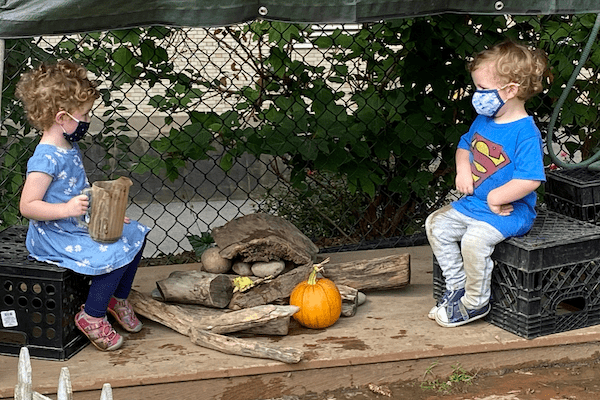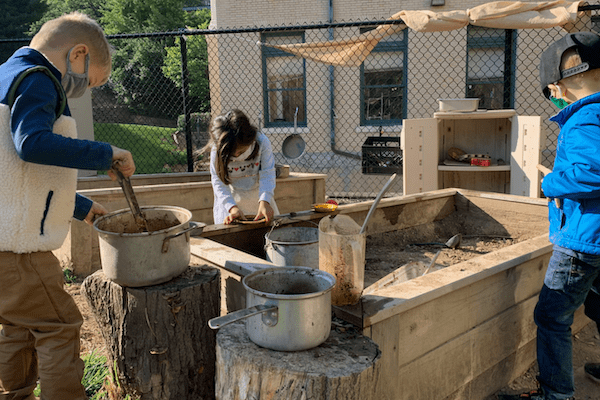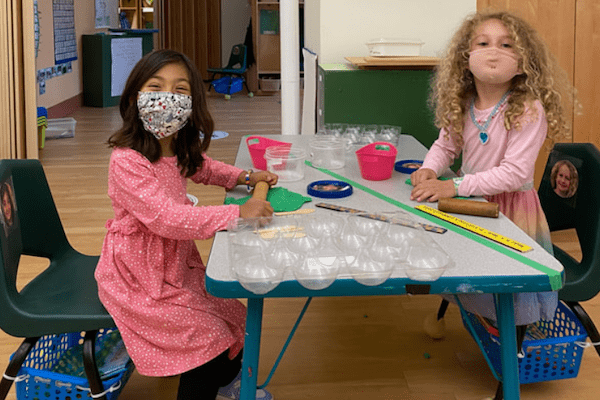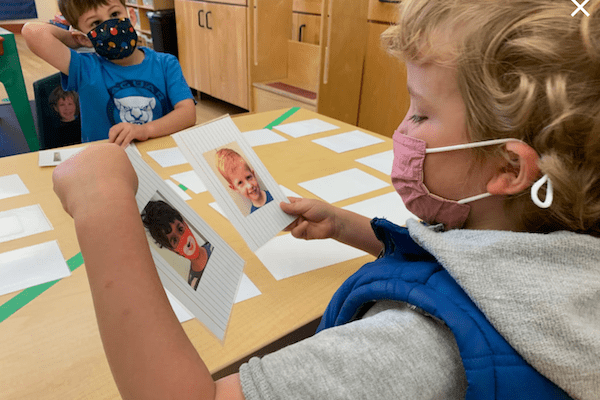CMU Children’s School Celebrates Unique Place in Education
Since 1968, Carnegie Mellon University’s Children’s School has been educating some of the smallest members of campus, 3-6 year-olds. This unique educational institution nurtures young children to promote social, cognitive and physical development.
The Children’s School is part of the National Coalition for Campus Children’s Centers. The first week of October has been set aside to celebrate similar centers of around the country.
“That week provided us the opportunity to highlight our excellence in early childhood education, as well as the ways we support developmental research and undergraduate education,” said Sharon Carver, director of the Carnegie Mellon University Children’s School and associate dean for Educational Affairs with the Dietrich College of Humanities and Social Sciences. “We used the week to illustrate the importance of a high-quality learning environment across generations of our young children, undergraduates, families, staff and researchers.”
During a normal year, the week is marked by a series of events that welcome the larger university community into the classroom to share the educational dynamics that can influence the path of the young learners as well as the future directions of early childhood care and education.
The pandemic has changed everything.
After following the university shutdown in March 2020, the Children’s School reopened its doors in September. With university guidelines in place, the school has amended cleaning practices and the learning structure to provide a safe space for the children and staff. With borrowed space from the Design Department, the Children’s School expanded to accommodate two-thirds of the enrolled children, and there is one group learning remotely. While the students no longer interact in common spaces, the children and educators are taking advantage of outdoor spaces, moving into the adjacent playground and reflection garden.
“The children have really risen to the occasion by doing all the things they need to do with handwashing and mask wearing,” said Linda Hancock, an educational administrator at CMU’s Children’s School. “Despite all the adaptations with spacing and materials, we still have all the learning and laughter while children get to know each other, mold playdough, build with blocks, paint, pretend and run.”
Undergraduate and graduate work at the Children’s School is also resuming. The Dietrich College has provided equipment to allow for remote observations, such as assessments of the children’s fine and gross motor skills by undergraduates studying developmental psychology. According to Carver, maintaining this research is beneficial for the students and researchers alike, in-person research is beginning gradually, with similar precautions as in the classrooms.
The pandemic has changed every aspect of the school’s normal routine, but the Children’s School, like the university, has met the challenge. While the school did not open its doors to visitors during the celebratory week, all were welcome to enjoy to a slice of the students’ daily activities in the slide show.
“A laboratory school is one of the best experiential learning opportunities for all members of our school community,” said Carver. “The Children’s School is an incredible campus asset.”


